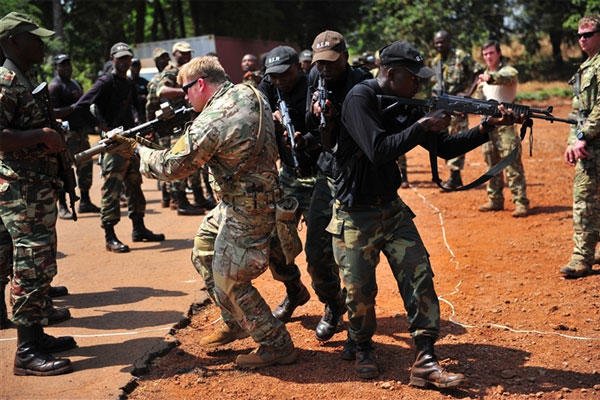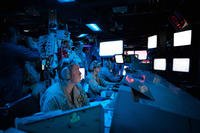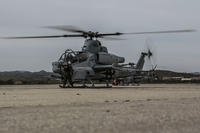Successfully taking down violent extremist groups around the world will require elite U.S. forces going back to their roots and leaving behind the direct combat role they took on during the wars in Iraq and Afghanistan, says the vice commander of U.S. Special Operations Command.
Just taking out a leader here and there is not going to do it, Air Force Lt. Gen. Bradley Heithold said Wednesday during a forum at the National Defense Industry Association in Washington, D.C.
"You've read about the U.S. forces either kill or capture missions and the like against the senior leaders of Al Qaeda -- sometimes referred to as a decapitation strategy," he said. "Is that going to work? No."
Direct lines of action like that buy time, but that's all, he said.
"Indirect lines of effort, by, with and through, using indigenous forces ... to affect the human domain will work," Heithold said. "But you have to be persistent about it, it's going to take a long time, so there's a dose of patience involved. Direct lines of action only buy you time for indirect lines to work."
Heithold remarked that he once told the vice chairman of the Joint Chiefs of Staff that the number of violent extremist groups had grown from 21 to 57 since 2001.
"I was making a point about protecting the resources of SOF [special operations forces], the value of SOF," Heithold recalled. "He said, ‘if there were 29 in 2001, and with all this money [you've gotten] there are 57 now, we're going backwards. Maybe we should reduce some of your resources.' "
But the reason for the growth, Heithold said, is that special operations forces had been occupied in Iraq and Afghanistan, away from the places where the threats have emerged and thrived. Military officials have cited the growth of terrorist pockets in places like Africa and the Pacific island chains.
Now, he said, that is all about to change. There will be more indirect actions such as training opportunities for foreign militaries. These were the original missions for U.S. special operations units.
"We are now starting to refer to ‘indirect actions' as special warfare, and not doctrine," he said. "It's changing ... You're going to begin to see a focus effects operations command back to its roots, of unconventional warfare, back to the use of special forces to do more indirect action than ... direct actions."
The take-away is not that special operators will not do direct action missions.
"We will always be able to do direct action," he said. "If we have to rescue somebody or do a kill, capture mission ... The focus going forward will be in building partnerships, long term affects and the like."




























